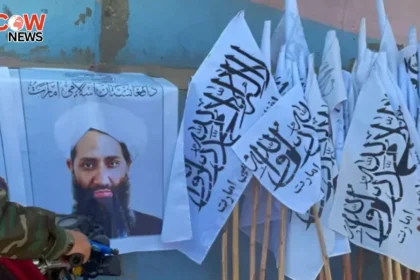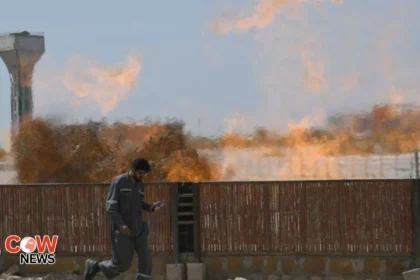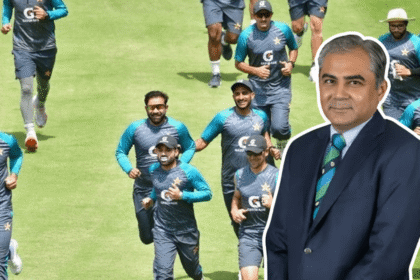Introduction
The recent disappearance of Imran Khan’s focal person has sparked widespread concern among Pakistan’s legal and political communities. Lawyers and supporters of the former Prime Minister and Pakistan Tehreek-e-Insaf (PTI) chairman, Imran Khan, are demanding immediate action from the government and security forces to locate the missing individual. The focal person played a crucial role in PTI’s organizational structure, liaising with both party members and external entities, making his disappearance not only a political issue but also a human rights concern.
- Introduction
- Background: Who Is the Focal Person?
- The Disappearance: What We Know So Far
- Lawyers’ Response: Legal Community Steps In
- Political Ramifications: A Chilling Effect?
- Impact on PTI
- Government Response
- Potential International Attention
- Human Rights and the Issue of Enforced Disappearances
- The Way Forward: What Needs to Be Done
This incident highlights the fragile state of political tensions in Pakistan, where disappearances, arrests, and detentions of political figures and their associates are becoming increasingly common. It has raised alarm about the safety and security of those affiliated with the opposition. The legal fraternity has now joined the movement to seek justice and ensure the safe return of Imran Khan’s focal person, calling for accountability from the relevant authorities.
This article explores the circumstances surrounding the disappearance, the response from the legal community, the implications for Pakistan’s political landscape, and the broader human rights concerns.
Background: Who Is the Focal Person?
The focal person for Imran Khan is a key figure in PTI’s political machinery. Their primary role involves coordinating between Imran Khan, PTI leaders, and party workers across Pakistan. They are often responsible for delivering important communications, arranging meetings, and strategizing key political moves, especially during high-pressure times, such as elections or national crises. This individual also serves as a spokesperson on critical issues, representing Imran Khan’s stance and maintaining a connection with media outlets and political allies.
Given this significant role, the focal person is a high-profile figure, making their disappearance a matter of public interest and concern for PTI members and supporters. The disappearance occurred at a time when the political atmosphere in Pakistan remains highly charged, with PTI consistently voicing concerns about the shrinking space for political opposition and fair democratic practices.
The Disappearance: What We Know So Far
Imran Khan’s focal person was reported missing on [insert date], and since then, there has been no official word on his whereabouts or condition. According to PTI leaders, the focal person was last seen leaving a party meeting before mysteriously vanishing without a trace. Family members and close associates have expressed fear for his safety, suggesting that his disappearance may be politically motivated.
The circumstances surrounding the disappearance are murky, with many speculating that it could be part of a broader crackdown on opposition figures by the authorities. The Pakistani government has faced accusations of suppressing political dissent, with critics pointing to a string of arrests, detentions, and disappearances of opposition figures and activists over the past few years. PTI officials argue that the disappearance of Imran Khan’s focal person is the latest example of this trend.
Lawyers’ Response: Legal Community Steps In
The legal community has taken swift action, filing petitions for the recovery of the missing focal person. Lawyers representing PTI have approached both the local courts and the Supreme Court of Pakistan, calling for immediate intervention by the judiciary to expedite efforts to find him. Prominent lawyers and human rights activists have condemned the disappearance, accusing the government of undermining the rule of law and human rights in the country.
The legal fraternity is playing a critical role in applying pressure on the state apparatus to take action. Their demands include:
- Immediate Recovery Efforts:
Lawyers are calling for a concerted effort by law enforcement and intelligence agencies to locate the missing focal person. They are urging the government to prioritize the case, citing concerns for his safety and well-being. - Investigation into Alleged State Involvement:
There are growing suspicions within PTI and the legal community that state actors may be involved in the disappearance. Lawyers are demanding an independent investigation into these claims, with transparency at every stage of the inquiry. - Human Rights Concerns:
Legal experts have emphasized that enforced disappearances are a violation of fundamental human rights, calling on the government to uphold international human rights standards. The legal community has invoked the right to life, security, and freedom from arbitrary detention as central to their calls for action.
Political Ramifications: A Chilling Effect?
The disappearance of Imran Khan’s focal person has broader political implications, especially in a country where political tensions have been simmering for months. Pakistan’s political environment is highly polarized, with PTI often accusing the current ruling coalition of unfair practices aimed at weakening the opposition. The disappearance adds another layer of complexity to an already volatile situation.
Impact on PTI
For PTI, the disappearance serves as both a rallying cry and a stark reminder of the challenges they face as a political opposition party. Imran Khan and PTI leadership have used this incident to highlight what they view as state-sponsored suppression of their political activities. They argue that such tactics are designed to intimidate and silence critics of the government.
The disappearance has galvanized PTI’s base, with supporters organizing protests and demonstrations to demand the focal person’s safe return. Social media platforms have been flooded with hashtags and campaigns aimed at drawing attention to the issue, with PTI leaders using these platforms to communicate with the public and keep pressure on the authorities.
Government Response
The government’s response to the disappearance has been muted. While some officials have expressed concern and promised to look into the matter, there has been little in the way of concrete action. Critics argue that the lack of a strong response from the authorities only fuels suspicions of state involvement. The government’s slow reaction may also be interpreted as an attempt to downplay the significance of the incident.
Potential International Attention
As Pakistan continues to navigate its political landscape, incidents like this could draw international attention to the country’s human rights record. International organizations and foreign governments have previously raised concerns about enforced disappearances and the treatment of political opposition figures in Pakistan.
Should the case of Imran Khan’s missing focal person gain traction internationally, it could lead to increased scrutiny of the Pakistani government and its handling of political dissent. This, in turn, could have diplomatic repercussions, particularly in terms of Pakistan’s relationships with Western democracies that prioritize human rights in their foreign policies.
Human Rights and the Issue of Enforced Disappearances
Enforced disappearances are a recurring issue in Pakistan, with human rights organizations reporting numerous cases over the years. Often, these disappearances involve political activists, journalists, or individuals linked to opposition parties. In some cases, the missing individuals resurface after being held in secret detention, while in others, they are never seen again.
Human rights groups have long criticized the Pakistani state for failing to address this issue. The UN Working Group on Enforced or Involuntary Disappearances has documented several cases from Pakistan, urging the government to investigate and prevent further incidents. However, progress has been slow, with few perpetrators brought to justice.
The disappearance of Imran Khan’s focal person raises concerns about the safety of other political figures and activists in Pakistan. If this case goes unresolved, it could set a dangerous precedent, signaling that such tactics can be used with impunity against the opposition.
The Way Forward: What Needs to Be Done
The disappearance of Imran Khan’s focal person has underscored the need for legal and institutional reforms in Pakistan to prevent such incidents in the future. Some key steps that could be taken include:
- Strengthening the Legal Framework:
Pakistan must strengthen its legal framework to better protect individuals from enforced disappearances. This includes ensuring that law enforcement agencies operate within the bounds of the law and are held accountable for any unlawful actions. - Judicial Oversight:
The judiciary must play an active role in overseeing cases of enforced disappearances. Courts should act swiftly to demand accountability from security forces and government agencies, ensuring that the rights of all citizens are protected. - Public Awareness Campaigns:
Raising public awareness about the issue of enforced disappearances is crucial. Civil society organizations, human rights activists, and the media should work together to educate the public on their rights and the importance of holding the government accountable. - International Advocacy:
Pakistan’s human rights record should be subject to international scrutiny. International organizations and foreign governments can apply pressure on Pakistan to improve its handling of enforced disappearances and human rights violations.
The disappearance of Imran Khan’s focal person is a critical issue that reflects the broader political and human rights challenges facing Pakistan. With the legal community demanding swift action, it is imperative that the government responds transparently and effectively to resolve this case. The implications of the incident extend beyond party politics, highlighting the need for stronger legal protections and accountability mechanisms in Pakistan’s political system.
#ImranKhan #EnforcedDisappearance #PakistanPolitics #HumanRights #PTI #FocalPersonDisappearance #LegalAction #PoliticalAccountability








